Recent Blog Posts
Destination: Shinsegae Centum City (the largest department store in the world – Busan)
Assume for a second that you enjoy big malls, or you enjoy meandering aimlessly for an entire day. Bigger than the Mall of America and the Macy’s flagship store in New York, the Shinsegae Centum City behemoth features almost every franchise Korea offers. Without needing to step outdoors, one has access to restaurants, a gym, a spa, a cinema, an ice rink, an art gallery, and a golf driving range. Oh yes, and hundreds of stores. With 509,810 square meters (that’s 5.49 million square feet) worth of floor area and 293,904 square meters of store area, there’s more room under this one roof than 2,355 average-sized American houses. To say ‘there’s a lot to see’ seems a huge understatement.
As the Lady in Red and I walked around, the hubbub seemed contained. No extravagant sales, no main stage attraction, and a surprising number of stores all selling the same thing. The point of this behemoth seems less focused on shopping and more on meandering. Between sharp corners and casual curves rest enough overpriced clothing stores to serve an army and enough walking space to make even the professional mall-walkers begin to limp. There isn’t any one place to look out and see it all, which seems the only downer; looking up, however, is easy around the escalators.
But does mass commercialism make this a place to spend a day? If you’ve enjoyed exploring the COEX in Seoul, then this Shinsegae is right up your alley. Go up to the 5th floor for a Kyobo bookstore, 6th floor for the Shinsegae Gallery, 7th floor to catch a movie, the 9th floor for a cold Sky Park,or stay on the 1st floor for a peek around the three-story Spa Land. And of course, the shops – most are the same brands you might find elsewhere, just more of them in the same spot.
And then there’s The Record – perhaps the reason this place was constructed in the first place. That world record was awarded on June 26, 2009 – and they’re quite happy about it. It’s a bit challenging to get a photo op with a piece of paper in a clear plastic cube, however.
Sure, there are plenty of other places to see around Busan – Haeundae Beach, Beomeosa temple, Busan tower, Geumgang Park – but until the weather warms up, this is as entertaining a place to explore. People-watch if you like, see and be seen, or just gawk at the prices.
Ratings (out of 5 taeguks): How do I rate destinations?
Ease to arrive:

Foreigner-friendly:
Convenience facilities:
Worth the visit:
Directions to Shinsegae Department Store: Take line 2 of the Busan subway system to the Centum City subway station. Shinsegae is connected to the subway station – just follow the signs. Free admission; department store open until 8pm (9pm on weekends and holidays), other attractions open even later.
This post was originally published on my blog,Chris in South Korea. If you are reading this on another website and there is no linkback or credit given, you are reading an UNAUTHORIZED FEED.
Share on FacebookRed Links, 2-5-11
 It’s an all-Africa edition. I’m just as fascinated by South Sudan’s sovereignty as I am by Cairo’s protests.
It’s an all-Africa edition. I’m just as fascinated by South Sudan’s sovereignty as I am by Cairo’s protests.
For some in the West, which has tended to put stability above democracy in its dealings with the Middle East, these developments are disturbing. Now that the protests have sucked the life out of Mr Mubarak’s regime, they argue, the vacuum will be filled not by democrats but by chaos and strife or by the Muslim Brothers, the anti-Western, anti-Israeli opposition. They conclude that America should redouble its efforts to secure a lengthy “managed transition” by shoring up either Mr Mubarak or someone like him.That would be wrong. The popular rejection of Mr Mubarak offers the Middle East’s best chance for reform in decades. If the West cannot back Egypt’s people in their quest to determine their own destiny, then its arguments for democracy and human rights elsewhere in the world stand for nothing. Change brings risks—how could it not after so long?—but fewer than the grim stagnation that is the alternative.
Revolutions do not have to be like those in France in 1789, Russia in 1917 or Iran in 1979. The protests sweeping the Middle East have more in common with the popular colour revolutions that changed the world map in the late 20th century: peaceful (until the government’s thugs turned up), popular (no Robespierre or Trotsky running things behind the scenes), and secular (Islam has hardly reared its head). Driven by the power of its citizens, Egypt’s upheaval could lead to a transformation as benign as those in eastern Europe.
Pessimists point out that Egypt has neither the institutions nor the political leadership to ensure a smooth transition. But if it did, the people would not have taken to the streets. No perfectly formed democracy is about to emerge from the detritus of Mr Mubarak’s regime. Disorder seems likely to reign for some time. But Egypt, though poor, has a sophisticated elite, a well-educated middle class and strong sense of national pride. These are good grounds for believing that Egyptians can pull order out of this chaos.
Fear of the Muslim Brotherhood is anyway overdone. It is true that the Brothers produced Ayman al-Zawahiri, now Osama bin Laden’s number two and chief ideologue; the writings of Sayyid Qutb, the Brothers’ leading thinker in the 1950s and 1960s, are certainly intolerant and hostile to the West. Any new Egyptian government, especially if it included the Brothers, would probably be harder on Israel and easier on Hamas, the Islamist offshoot that runs the Gaza Strip between Egypt and Israel, the very existence of which it in theory rejects.
Yet the Brothers are a varied bunch, and more flexible than they were. Though some argue for rescinding Egypt’s peace treaty of 1979 with Israel, they probably would not risk another war. Nor would they obviously win elections. They are respected for their piety, discipline and resilience, but estimates of their popularity hover around 20% and have been falling. If they did better than that, perhaps even winning power at the ballot box, some fear they might never let go. But Islamists participate in elections in countries such as Turkey, Malaysia and Indonesia where democracy has taken hold.
If democracy is to flourish in Egypt, the Brothers must be allowed to compete for power; and the lesson of the past few weeks is that the alternative to democracy is a dead end. For several years now, unable to renew its institutions or find jobs for its youth, Egypt has been becoming more repressive. To leave 85m people to live under dictatorship—burdened by a corrupt and brutal police force, the suppression of the opposition, and the torture of political prisoners—would not just be morally wrong; it would also light the fuse for the next uprising. Some would wish to install a new strongman and wait for him to create the conditions for a secular democracy. But autocrats rarely plan for their own removal, as the sad state of the Middle East shows.
So Mr Bush is vindicated? Not so fast. Yes, those who mocked his belief in the Arab appetite for democracy were wrong; he is to be admired for championing reform and nudging autocrats towards pluralism. But keep things in proportion. The big thing Mr Bush did in the Arab world was not to argue for an election here or a loosening of controls there. It was to send an army to conquer Iraq. Nothing that has happened in Tunisia or Egypt makes the consequences of that decision any less calamitous.The war poisoned the Arabs’ reaction to everything America later said or did. Iraq is now a fragile democracy, but precious few Arabs (and rather few Europeans) believe that Mr Bush invaded Iraq for democracy’s sake. Many think the non-existent weapons of mass destruction were a pretext, too. In Cairo in 2009 Lexington met a pro-reform academic, Nader Fergany, still seething six years on. “The Americans are the Mongols of the 21st century,” he said, “and now Barack Obama is trying to put the icing on this dirty cake.” Whatever they think of the freedom message, most Arabs utterly reject the messenger.
Besides, even without Iraq, Mr Bush’s freedom agenda had its flaws. The chief of these was that Mr Bush wanted Arab democracy on the cheap. That is to say, he wanted Arab leaders to empower their people but at the same time to protect America’s strategic interests. That put a limit on how far he dared to push the reliable old autocrats. And, knowing this, the reliable old autocrats thought all they needed to do to stay safely on their perches was to wait Mr Bush out. Moreover, towards the end of his presidency, Mr Bush himself got cold feet. The electoral victories of Hamas in the Palestinian territories and Hizbullah in Lebanon presented him with democracy’s foreseeable but unwelcome corollary, to wit that Arabs granted the gift of freedom might plump ungratefully at the ballot box for America’s bitter enemies.
With a divorce now virtually certain, the two sides must contemplate a division of assets. First they must mark the border, the longest in Africa. That need not be a huge problem: both sides have agreed to stick to the border left behind by the British and, where land occupied by north or south is on the wrong side, they could agree to a swap. More important than the exact line is the nature of the border. Both sides would like it to be “soft” to allow for the free flow of goods and people. Ideally, they would create a demilitarised zone, but the UN has no wish to patrol it. Instead, a rapid-reaction force could be formed. If it fails to keep the peace, the border may end up more rigid than either side wants.The trickiest part of the border dispute centres on the region of Abyei. Two years ago, and again in January, it saw vicious fighting. Burned-out vehicles and collapsed houses dot the landscape. Muslim cattlemen from further north believe they have grazing rights in the Kiir river valley. The northern government supports them. Oilfields below the verdant pastures have a lot do with it. “What Khartoum wants is black, not green,” says a southern general. Under the peace deal of 2005, Abyei was supposed to have its own referendum to decide which side its mainly Christian residents will join. But northern rigidity made that impossible. Now a deal must be done.
The existence of oil so near the border might be thought a catastrophe for Sudan. War seems to follow oil as if by a law of nature. But in this case, oil could be the lubricant that keeps the peace process going.
Not many of Sudan’s oilfields are disputed, as in Abyei. Most are solidly in the south. But the south is landlocked. At the moment it can export oil only down a pipeline that goes through the north to Port Sudan. The two sides need each other, and have shared revenues for years. In the south 98% of the government budget comes from oil; in the north it is about half.
The current sharing arrangement, designed for a single sovereign country, is likely to change after secession. The south may start paying the north hefty transfer fees instead of splitting revenues. If the two sides cannot agree, the old arrangement could continue for a while by default. The joker in the pack is a southern plan for a new pipeline to Kenya, cutting out the north. Yet foreign advisers in Juba have publicly doubted that the plan is viable. A sigh of relief was heard in Khartoum.
Little hope of a pension for Salva KiirFuture fighting between north and south cannot be discounted. But the more likely source of violence now is an internal conflict in the south. Tribal loyalties are fierce, arms flow freely, army units are fractured and cattle-raiding is rampant. Most of the fighting of late has been between southern groups; there is less and less evidence of northern involvement. The south has to learn to take responsibility for itself.
However, eradicating Somali piracy is as hard as it is desirable. Because Somalia is not a functioning state, the pirates can operate freely from their harbours in the north, mostly in the breakaway territory of Puntland. Although ships from over 25 countries patrol the area and maritime law equips naval vessels off the Horn of Africa with powers of arrest, bringing pirates to justice is frustrated by cost, restrictive rules of engagement and politics. Hence 90% of captured pirates are released quickly and without sanction. And the foreign patrols’ effectiveness is declining as the pirates move ever farther offshore.There are many suggested remedies, some bad. Outlawing ransoms is neither feasible nor in the hostages’ interests. Stationing armed guards on vessels or training crews to use firearms would only provoke a more brutal response from the pirates. Applying the historic cure for piracy—exemplary violence—would lead to many more dead hostages.
The successful campaign against the pirates who caused mayhem in the Malacca Strait a decade ago suggests that the answer lies onshore rather than offshore. Malaysia, Indonesia and Singapore agreed to bury their differences and work together—patrolling, arresting, prosecuting and imprisoning pirates. At the same time as the risks for the pirates increased, conditions on shore improved. The post-tsunami peace settlement between the Indonesian government and rebels in Aceh, where most of the pirates came from, paved the way for investment, economic development and a better way of life.
A similar twin-track policy for Somali piracy would mean first putting money and effort into training coastguards, and constructing courts and prisons in the region. The authorities should also go after the dozen known kingpins who back the pirate gangs. At the same time, because it will take decades to rebuild the shattered Somali state, the outside world must itself engage directly with Puntland’s clans and help rebuild villages, infrastructure and fisheries which have been ravaged by foreign trawlers and the dumping of toxic waste. Although the region is chaotic, its prospects are not hopeless: neighbouring Somaliland, a breakaway piece of Somalia unrecognised by the rest of the world, makes a fair fist of governing itself.
The European Union, which operates one of the biggest anti-piracy naval forces in the area, says it is committed to a “comprehensive approach” that combines bringing pirates to justice and helping them find other livelihoods. It is a chance for Lady Ashton, the EU’s foreign and security chief, to show that her new external action service merits the name.
My Note: I agree with Professor Kelly – the ROK Navy’s performance in the Indian Ocean is impressive. Still, that spectacle and the non-issue of how tasty Korean prison food might be are distractions. The sword is a very blunt, costly policy tool, and quite unjust if large numbers of pirates are chain-ganged victims.
The agenda is almost recklessly ambitious. Mr Kan plans to overhaul social security, giving more credible assurance about the state’s ability to pay future benefits. By June he will have plans to raise the consumption (ie, sales) tax as a means of stabilising the finances of one of the world’s most indebted countries, in which more government bonds are issued than tax revenues collected. Critics say that would cripple an already beleaguered economy. But, crucially, the plan combines fiscal tightening with measures to stimulate growth. Mr Kan wants Japan to join a radical free-trade area called the Trans-Pacific Partnership, currently being expanded to nine nations, including America. It would mean facing down the farm lobby to remove barriers to some of the planet’s most protected rice. Mr Kan’s preference for an America-oriented trading block is all of a piece with his efforts to revive the Japanese-American alliance: for the first time since Mr Koizumi, a prime minister is articulating a vision of Japan’s place in the world, as well as a response to a rising China.

Powered by ScribeFire.
Filed under: Africa, East Asia, Link Dumps, Subscriptions, USA Tagged: egypt, eu, hosni mubarak, japan, muslim brotherhood, oil, piracy, puntland, south sudan, the economist
North Korea-Chinese Agreement on Raw Materials is a Worrying Development
It is a well-known fact that the economic development of China has been very rapid, as it has grown at basically 8-10% per year for almost the past 30 years. The impact on the global economy has been enormous. The largest Korean companies, Samsung Electronics, Hyunda-Kia Motor Corporation, LG Electronics, Hyundai Heavy, SK Energy, POSCO, to name a few, have benefited \during this time. The revenues earned \by the largest Korean companies have funded research and development efforts which have yielded global market share gains versus its global competitors, including the Japanese. Globally, Korean companies are at least on par with their global competitors as measured by almost any measure. The Seoul Gyopo Guide has pointed out that the relatively weak Korean Won has also played a very strong role in this.
China's Growth Has Keep Global Inflation Down. For Now.
The reason that "inflation" on a global level has been subdued over the past 20 years has been largely due to the fact that China has absorbed much of the price pressures that would have otherwise occurred. As demand has increased in other parts of the world, China supplied cheap items at an almost-endless rate, it would seem. China has been able to do this because it is trying to transition 1.3 billion people out of its rural living into cities and a modernized economy. Doing this has been no small feat.
However, the slow-moving train of global inflation seems to be picking up steam around the world. Korea has also experienced this. As those same 1.3 billion people have gradually become wealthier, they have become consumers on their own as well. As the Chinese economic evolution continues, China will demand raw materials in order to continue it development.
The problem: the supply of raw materials is in question and the demand continues unabated. The result: inflation for raw materials of almost every type. China, once the great dampening force on global inflation, is becoming the great source of global inflation.
China's Delicate High-Wire Act
As a centrally planned economy, China has looked into the future, which means that its time horizon is more than 5 clicks on the internet. Its demand for raw materials, and energy resources, has been undeterred by almost any economic shock over the past 2 decades. Many in the financial markets would suggest that China has hoarded certain raw materials. It is understandable to see why. Take copper, for instance. Copper is the one metal which is absolutely essential for construction. Over the past 20 years, the price of copper has tripled, even with global output increasing by over 50% during that same time.
At a time that China is trying to grow its economy, it must also try to quell inflation. Inflation has historically been the reason that governments are thrown into turmoil. Many countries today are facing this as food shortages coupled with inflation have made the general populations...uneasy, to put it mildly. The Chinese Central Bank is playing a very delicate balancing act indeed.
Out of Singapore, this article appeared, and it can, almost all by itself, explain why China won't allow a war between Koreas, and why this can fundamentally change the nature of the North-South Korea relationship.
If True, North Korea's Raw Materials Reserves Are Enormous
According to the CIA, North Korea's GDP in 2009 was about $40 Billion. According to the AsiaNews site above,
South Korea estimates the total value of mineral deposits in North Korea at 6.3 trillion dollars.
"The agreement contains a specific list of mines to be developed...including gold, anthracite coal and rare earth mineral mines," Yonhap quoted a source familiar with North Korean affairs as saying.Well, how much is $6.3 trillion dollars? Let's say there are 25 million people in North Korea. That is $252,000 per person. This is not to say that North Korean citizens will instantly become $252,000 wealthier (yes, I have received this type of email). It simply gives you an idea of how much money that is, and its effect on the relatively small North Korean economy. This is actually a HUGE understatement of the potential effect because of the associated infrastructure that will need to be built in order to extract those raw materials.
Most recently, China has threatened to cease the export of minerals called 'rare earth' metals. The reason for this is that those rare earth metals, although used in very small quantities, are critical for technology manufacturing. It is yet another reason that the $6.3Trillion estimate may be too low, i.e. it will not take into account the potential for much higher prices of rare earth metals.
If True, North Korea's Raw Materials Reserves Are a Game Changer
Development of raw materials extraction could not come soon enough for the North Korean economy. How this develops will be interesting, and potentially can strongly affect the North-South Korean dialogue, as well as how Korea fits in the greater regional geopolitical structure.
Readers of the Seoul Gyopo Guide know that the writer believes that war on the Korean peninsula is unlikely at best. The bottom line is that there are too many parties who have too much to lose if there is a widespread war on the Korean peninsula, and the Korean people are unlikely to wage war with one another (self-defense is another, more complicated matter, and that is why President Lee has taken harsh, well-deserved criticism, for his administration's handling of recent events). Development of raw materials is critical to China, which further supports the Seoul Gyopo Guide's claims. There are other issues to consider. First, the Chinese are likely to strike exceptionally favorable terms from North Korea, given North Korea's economic woes. It is not hard to imagine that any agreement is tied to further economic assistance from China to North Korea. Second, the question will remain on where those revenues will go. If the revenues are diverted for military development, then this would be a source of funds that could be very dangerous to the North-South Korean standoff. Third, South Korea itself could be greatly disadvantaged compared to Chinese competitors. Already, China poses a threat to certain important Korean industries. A steady supply of raw materials at below-market prices would be a great advantage for China-based corporations. Any one of the three issues may prove to be a flashpoint: the combination of all three is particularly intriguing.
Conclusions
South Korea, too frequently, is a mere spectator to large, transformational changes in the global economy. Most of this is not due to anything that the South Korean government has done. South Korea remains small geographically, without many raw materials resources of its own, and with a relatively small population. These limitations make South Korea's rapid economic development even more amazing in many ways, especially in light of the fact that there has been continual, competent competition from foreign-based companies (ever hear of Toyota or Sony?). Until now, South Korean economic and monetary policy have provided a shield for South Korean industries which has allowed these industries to become global leaders. However, it is a story yet uncompleted because Korea is not China, and the fact that such a large economy has levers that can be used to disadvantage South Korea is troubling. This will not happen overnight, and how raw materials are developed in North Korea is still yet to be determined. Nevertheless, the potential effects of North Korean-Chinese cooperation on the development of sorely-needed raw materials could be enormous.
Clearly, this post needs to be expanded greatly, and will be expanded in upcoming updates.
Please "Like" this post and/or follow me on Twitter.
The Trojan Horse
I was still in bed at 09:50 Saturday morning with my wife rushed in to put on some better clothes. Was she going out? No, a KT engineer was coming to our apartment to install an Internet phone.
You know how these days it's quite popular in scripted television to dispense with a linear narrative and instead join a story half way through, and then jump around in time to fill in the back-story? That's what my entire life is like in Korea behind the language barrier.
So what's the Internet phone back-story? Apparently between our Internet connection and TV package we spend a lot of money, so we were offered one for free. Well, I say 'we', but only in the most general sense, because no-one offered me anything. You know how people sometimes say they didn't get the memo? Sometimes I think I might not even be on the payroll.
But OK though – it ticks all the boxes, because the deal contains two of the three most important words in the English language – 'free' and 'Internet'.
The engineer arrives and hacks away at one of the wall sockets behind the TV in the lounge. By the time he's finished a wire will run out from under the plastic housing which from experience I increasingly believe must be the method taught in Korean schools and universities. Later, the plastic cable shielding is dispensed with entirely in order to split the underlying wires off in different directions.
And then our phone comes out of the box, along with a large block of moulded plastic which I quickly surmise from the holes in the back is a four-port router. Interesting, I think to myself – because our current 'Anygate' router is in our office and it seems to have a wireless reach of about 15 feet in our apartment, although it really needs a clear line of sight to work well, despite its six inch antenna. By coincidence, six inches is about the distance my Samsung NC10 likes to be away from the router to get a good connection. Perhaps our apartment has thick walls, bad atmospherics and radio spectrum interference.
The new router transpires to be wireless, for the phone – prompting my first question – how can we turn it off? You can't. I suppose that follows – because it's needed for the phone, and I guess you'd expect to have that on all the time. But now this isn't looking like such a good plan. My computers run a mix of Ubuntu Linux and Windows, the latter being a reluctant necessity for some of my trading systems and Korean Internet banking. I try to aggressively protect our IT infrastructure because computer problems cost money in my line of work, and our office router has the longest possible encryption key and its wireless networking switched off when not in use. Then along comes our new Internet phone and suddenly we're broadcasting to all and sundry.
My next question, translated into Korean, is 'will this frak around with our office network?' So the engineer suddenly enters our office and walks up to my computer before I realise what he's doing. He predictably fails to recognise that I already have a browser window open on my Windows machine because it's sitting inside a VMware window running Ubuntu, but he does win points for recognising the Firefox icon and immediately starting it up. “This country is changing”, I thought – back in 2007 when I presented an earlier KT Internet engineer with a Firefox window so he could check something he practically panicked. In fact, I'm not sure he understood that you don't need Internet Explorer to access the Web.
Personally, I might have turned off the phone at night, because apparently we're keeping the old landline phone, and we all have our mobiles turned on 24 hours a day anyway since this is how we communicate with each other in the apartment. Yes, we're just another Korean cellphone family.
So the router has a password written on the back. It can't be changed. It's four characters long. Four. But hey, I write sarcastically, at least it's a mix of letters and numbers. As a British computer science graduate, I often wonder what they teach computer science undergraduates in Korean universities, because it certainly doesn't seem to be computer science and it certainly isn't common sense either. This Windows-ActiveX obsessed country frets about the risks of cyberwarfare from North Korea and, realising that hardware is becoming increasingly commoditised and made in China, it wants to become a 'global software hub', even though it's kind of hard to base your economy on intellectual property when your citizens think that software piracy is practically a human right. There are a lots of things I like about Korea, but with my background, software and IT security aren't among them.
Every week I go to Busan e-FM and recently they've moved to a new location. They are now housed in a building belonging to the Busan IT Promotion Agency. I wish them luck.
Apparently, our new KT Internet phone can call other KT Internet phones for free. But not SK or LG phones. So if we say it's VoIP, it's a very broad definition of the term because it's only really useful in the walled-garden of our provider; as I understand it otherwise the charges are comparable to normal. But, allegedly, you can buy another KT Internet phone for 30,000 won, take it or send it overseas and plug it into an obviously non-KT connection, and still phone other KT Internet phones in Korea for free, which is quite handy if true. Whether it's really worth potentially compromising your network security over however, is a question only you can answer.
Busanmike.blogspot.com
Twitter: @BusanMike
YouTube: /BusanMikeVideo
Flickr: /busanmike
Jagalchi Fish Market: December 2010
seomyeon salsa
I have salsa danced in San Francisco, but I'll tell you what-- I was pretty intimidated here last night. Cici said it best: "Man, this is hardcore!" Also, I am not used to their incorporation of K-Pop in their salsa dancing.
The place is a little underground club in Seomyeon called Latino. I had a blast.
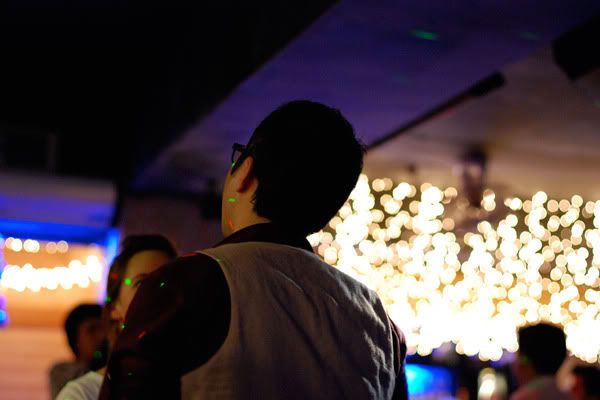


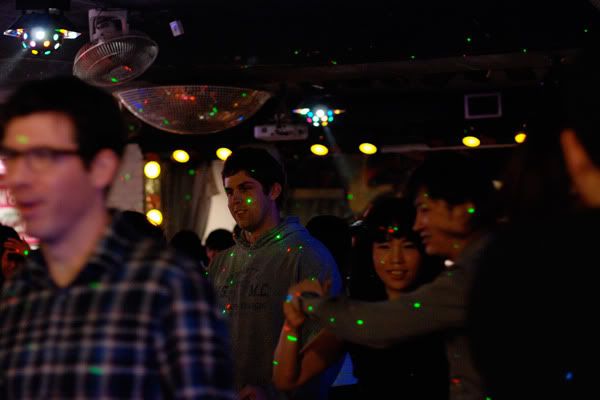
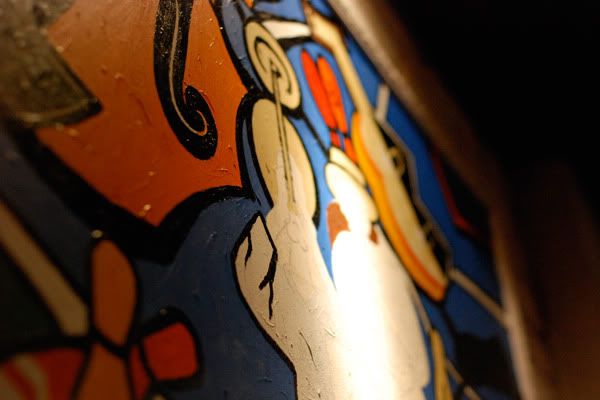


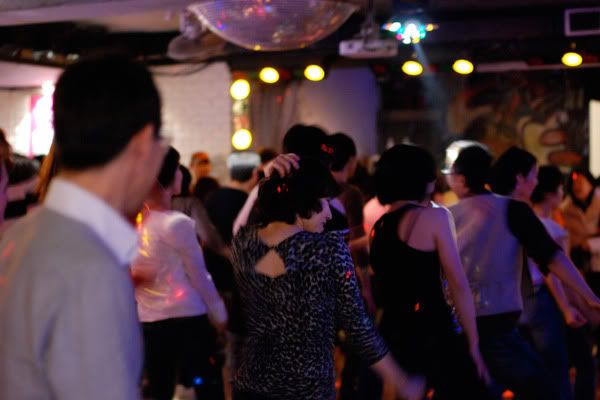
They call it line dancing, which makes me think of hoedowns. It is not country at all. Also, I love that the men totally get into it. Unabashedly shaking their shoulders and hips all sexy.
KPop Hasn't Hit It Big Until It Shows Up on CBS...
You will know that you have made it big when your music shows up here, like the Indian genre featured in Bollywood movies. This song is a spoof on the genre on CBS' comedy (and my favorite comedy in the U.S., The Big Bang Theory).
Now, back to our regularly scheduled programming, and no, I don't mean Seoul Sunday....









 RSS Feed
RSS Feed


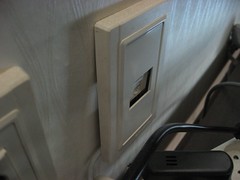
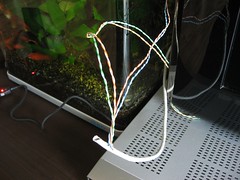
Recent comments